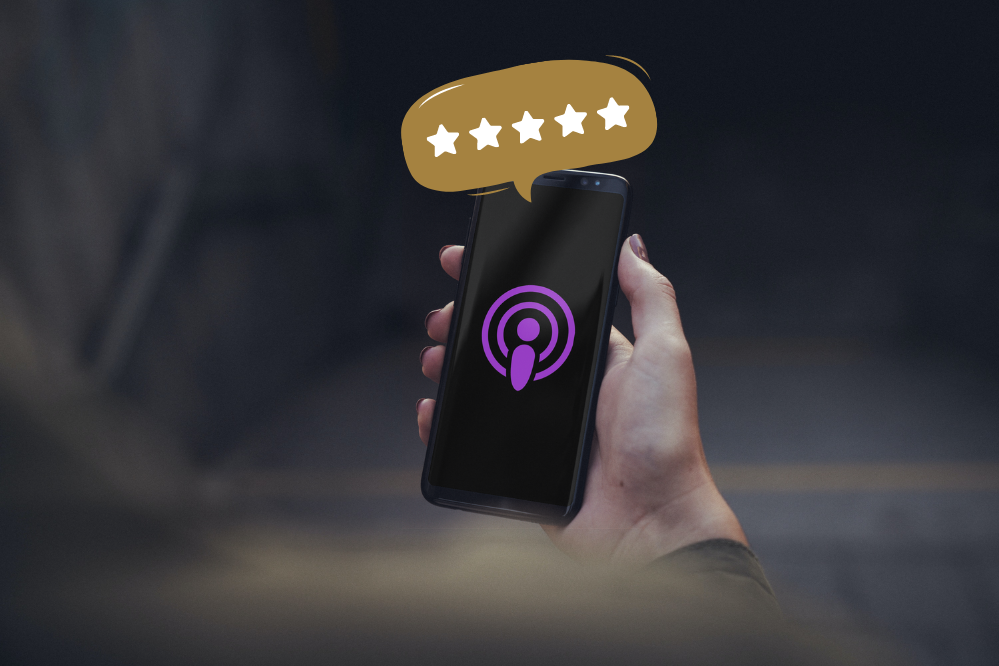Episode 88: How to Stand Out (and Win Over Investors) in a Crowded Sea of Fund Managers | Story Snacks Series
Subscribe to Billion Dollar Backstory on Apple Podcasts, Google Podcasts, Spotify, or wherever you listen to podcasts.
As a boutique, blending in isn’t just a mistake; it’s a death sentence.
You don’t need to be BlackRock. You need to own what makes your fund different.
But let’s be real: finding your edge—and actually leading with it—can feel like showing up to a black-tie event in your pajamas. Awkward. Exposed. Uncomfortable.
That’s why in this Episode, Stacy breaks down:
Why trying to prove you’re “better” is a losing game for boutiques
The 3D Model for uncovering what actually makes your fund stand out
How to flip your mindset and start viewing your “weaknesses” as strengths investors value (and spotlighting those strengths in meetings)
The #1 edge boutiques have over the bigs in allocators’ eyes (and how to lean into it)
This is Story Snacks! A bite-sized, jam-packed series for fund managers who are ready to master strategic storytelling in less than 20 minutes per week!
Want More Help With Storytelling?
+ Subscribe to my newsletter to get a weekly email that helps you use your words to power your growth: https://www.stacyhavener.com/subscribe
- - -
Make The Boutique Investment Collective part of your Billion Dollar Backstory. Gain access to invaluable resources, expert coaches, and a supportive community of other boutique founders, fund managers, and investment pros. Join Havener Capital’s exclusive membership
TRANSCRIPT
Below is an AI-generated transcript and therefore it may contain errors.
[00:00:00] Stacy Havener: one of the things that allocators \ Like about boutiques is that they have access to you as the founder, they can say, I have been friends with. that founder from the beginning, I was one of the first investors in, and when you're a successful boutique running billions of dollars, that's part of what lights an allocator up.
[00:00:23] Hey, my name is Stacy Havener. I'm obsessed with startups, stories and sales. Storytelling has fueled my success as a female founder in the toughest boys club, Wall Street. I've raised over 8 billion that has led to 30 billion in follow on assets for investment boutiques. You could say against the odds.
[00:00:45] Yeah. Understatement. I share stories of the people behind the portfolios while teaching you how to use story to shape outcomes. It's real talk here. Money, authenticity, growth, setbacks, [00:01:00] sales, and marketing are all topics we discuss. Think of this as the capital raising class you wish you had in college, mixed with happy hour.
[00:01:10] Pull up a seat, grab your notebook, and get ready to be inspired and challenged while you learn. This is the Billion Dollar Backstory . Craving more knowledge, but don't always have time to sit down for a five course meal? Take a quick snack break with Story Snacks, bite sized content to feed your funnel. Each short episode features Stacey digging into one question. This series has her talking stories, sales, and so much more. Oh yeah, it's time for Story Snacks. How can you stand out in a sea of fund managers? This is a very good question. Because there is a sea. It's an ocean. [00:02:00] Sometimes a tidal wave. So, I wanna set the stage a little bit here because I wanna shrink the sea.
[00:02:08] I wanna boil the ocean. a little bit, down to a smaller pond. Because what I don't want us to be doing is trying to compete. against the bigs. Because if in this ocean we're swimming around and Blackrock's swimming around and we watch what Blackrock's doing and we think, oh, I need to do something like that in order to stand out, we're going to drown.
[00:02:31] So I don't really want us getting distracted by the big fish swimming around. I want us to really think about how can we stand out Yes, it's a C, but just period the end. How can we stand out? And for that exercise, we really need to go to what makes us different. And it starts with what makes a boutique different.
[00:02:56] Because all of the things that make us different that we might [00:03:00] think are disadvantages are actually advantages that are just flipped around. So let's unpack a couple of those. So, we might think that, oh my gosh, I don't have a huge team, I don't have economists, I don't have, data people, and I don't have all these things, and it's me and a handful of people, or it's just me, and that's a disadvantage.
[00:03:23] Flip. How can we make that an advantage? Because one of the things that allocators who like boutiques Like about boutiques is that they can pick up the phone and call you. They have access to you as the founder, as the fund manager, they can say, I have been friends with. that founder from the beginning, I was one of the first investors in, and when you're a successful boutique running billions of dollars, that's part of what lights an allocator up.
[00:03:58] An early adopter allocator they're [00:04:00] there for that. So one of the ways that we can really tap into this differentiation and standing out in this crowded sea is to look at the things that we maybe feel bad about. The disadvantages and flip them over and say, okay, but how can I make that an advantage?
[00:04:17] So that's broad. That's big. That's high level. Now let's drill down into specifics. And let's remember that standing out requires us to do something that goes against our human nature. Standing out requires us to be different. And as humans, we are not wired for that. It is in our DNA to fit in because that's survival.
[00:04:44] And so, to do the exercise of tapping into your edge and your differentiators is actually really difficult because it's not how we're wired to behave. So, my favorite hack for this, and this is what we teach in our 3D model, the three differentiators, the way to get [00:05:00] at your different, is to ask yourself this question.
[00:05:03] What is something my peers do or believe that I don't? And actually, you can unpack that into two separate questions. What is something my peers believe that I don't, parentheses, philosophy? What is something my peers do that I don't, parentheses, process? And the third D. Is people. So what is something common to the, people at a peer firm that I don't have, don't agree with, et cetera.
[00:05:46] For example, we have some clients, that last one's tough, but we have some clients where they do not have the pedigreed, Harvard, Yale, big company. employees. They have this state [00:06:00] school, scrappy hustlers who've never worked on technical Wall Street, and that's part of their DNA. So this is really tough stuff, let me just say, okay, because again, different is not how we're wired.
[00:06:15] We don't want to do it, but we have to remember that the way to stand out is not necessarily by being better than the other fish in the sea. It's by being different. Then the other fish in the sea such that an allocator can take a couple different fish and put them together in a portfolio and it's going to be better for the richness of that tapestry.
[00:06:38] The other thing you can do to stand out in this crowded seat, goes back to something I said in the beginning, which is some of the things that we feel are, disadvantages as boutiques are actually advantages if we flip them on their heads. And we talked about access. There's another thing that boutiques can do that's more difficult for a large firm to do, which is [00:07:00] actually to show up as a real authentic human being.
[00:07:03] So if you work for a big company, the amount of layers and handlers and managers of communication that are, embedded in a structure like that, it's, massive. And it's very difficult for somebody in the C suite For sure the founder of a very big firm to show up authentically. It can be done and there are people who do it successfully, but they are the exception, not the rule.
[00:07:28] I want you to juxtapose that with how a boutique founder, fund manager could show up. Of course, in a culture of compliance, but we can show up with more authenticity. There's less corporate jargon speak you know, there's less party line that we have to, toe. And so how can we show up as the real people we are?
[00:07:56] Yes, for the expertise that we have and for what we do in our [00:08:00] 9 to 5, but also for the passions and, parts of our story that maybe don't Directly impact our nine to five, but do because it's who we are as people. Do we love to read? Are we passionate about a certain charity? know, for me, soccer is a huge part of my life.
[00:08:20] not anymore, but it was, and it's how I got into this business. So it will always have a really special place in my heart. Sports in general, being a female in finance, these things don't directly impact my nine to five. They kind of do. And so I want us to make sure that we're not just showing up as insert title of our business, but also as who we are as human beings.
[00:08:48] This podcast is for informational purposes only and should not be relied upon as a basis for investment decisions. The information is not an offer, solicitation or recommendation of any of the funds, services [00:09:00] or products or to adopt any investment strategy. Investment values may fluctuate and past performance is not a guide to future performance.
[00:09:07] All opinions expressed by guests on the show are solely their own opinion and do not necessarily reflect those at their firm. Manager's appearance on the show does not constitute an endorsement by Stacey Havener or Havener Capital Partners.





